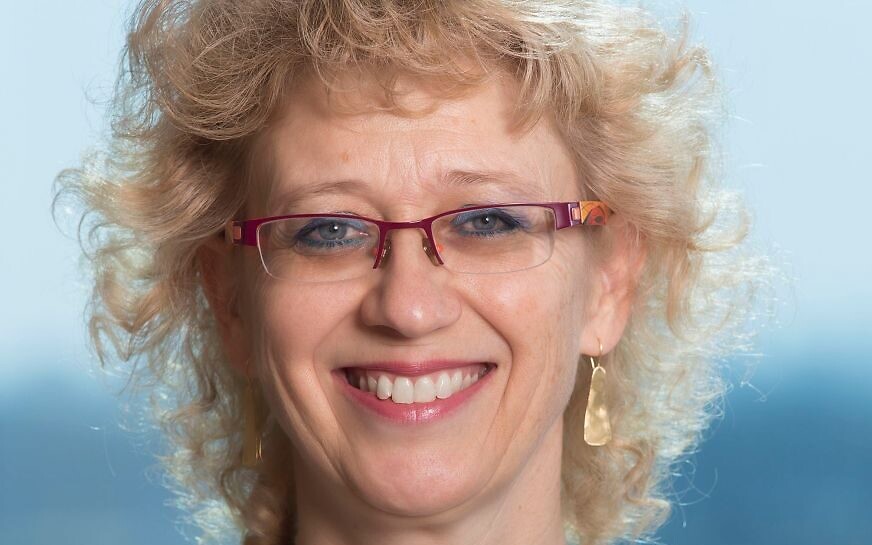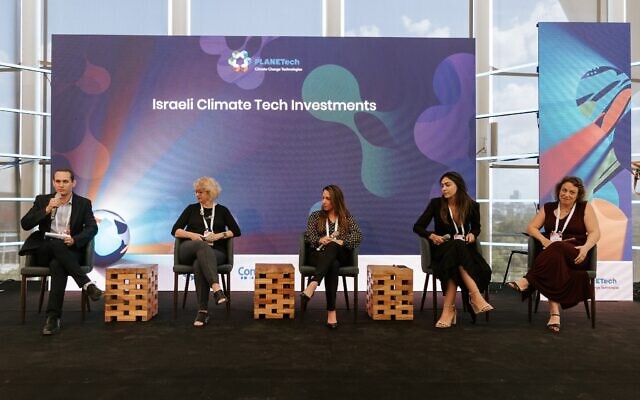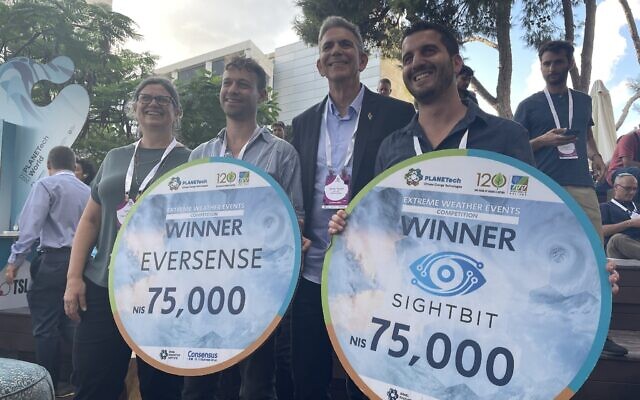Government must provide incentives to enable those climate tech companies that can benefit local markets to stay in Israel for a period, before seeking bigger markets overseas, the country’s first climate tech conference heard Wednesday.
Over recent months, several homegrown companies have announced that they are moving abroad. These include Future Meat, a Jerusalem-based biotechnology firm that creates chicken, lamb, and beef products made from animal cells, which is to build a production facility in the United States, and Remilk, a developer of cultured milk and dairy, which plans to open the “world’s largest” facility for the production of cow-free milk in Denmark.
“Israel is a small market and companies are global by design, they want to conquer the world,” Cecile Blilious, Head of Impact and Sustainability at Pitango, one of Israel’s biggest VC funds, told a session on Israeli climate tech investments.
“If there’s no good reason to stay, they’ll go to the US or other big markets.”
But Israel could provide more opportunities for technology dealing with climate than other fields, she went on.
“There’s a bigger market in Israel for the use of climate tech solutions — from utility companies, to oil and gas companies, to large corporations.”

Cecile Blirious, of the venture capital fund, Pitango. (Courtesy)
“They’ll be able to scale up, based on their experience in Israel. But something needs to facilitate this. The government’s role is to provide the incentives to the ecosystem to enable these startups to integrate solutions first in Israel, so they can later scale to other countries. “
Noting that climate tech companies could also find local opportunities in manufacturing, Liat Sverdlov, investment partner at OurCrowd, said that startups that were not yet generating revenue currently found it difficult to secure state financial incentives.

From left: Hanan Brand, VP, head of Start-Up Division at the Israel Innovation Authority, Cecile Blilious, of Pitango, Natalie Refuah, of Viola Growth, Elle Taitou Spruch, of Hanaco, and Liat Sverdlov, of OurCrowd, speaking at Israel’s first climate tech conference, PLANETech World 2022, held at the Yitzhak Rabin Center, Tel Aviv, on September 21, 2022. (Perry Mendelboym)
In June, the government approved an NIS three billion ($870 million) plan to boost climate tech — an umbrella term that includes technologies for clean energy, transportation, water treatment, food manufacturing, waste reduction, and supply chain improvements.
An inter-ministerial report found that investors were less willing to put their money into climate initiatives because they are relatively high risk and their profits are too long-term.
Climate-related product development is complex, takes many years, and is often based on hardware, which is costly to develop and carries a high risk, the report said. It needs long-term and relatively high investment, even before proof of concept, as compared, for example, with programming-based products, and companies have to absorb losses before reaching the point at which they can scale up their products and turn a profit .
“You need to show you can solve a big problem for investors to take a big risk,” panel moderator Hanan Brand, Vice President and Startup Division director at the Israel Innovation Authority, told Thursday’s confab. Funders would invest in companies they believed could really help save the planet, even if they needed another four to five years of development.

Funders are looking for climate technology that can help save the planet. A man carries bags of onions during flooding in Xinxiang in central China’s Henan Province, July 26, 2021. (AP/Dake Kang/File)
OurCrowd’s Sverdlov pointed out that there were many climate-specific funds with different time horizons, among them private family funds, for whom waiting a few years for any yield was not an issue. “Models like OurCrowd could be a good fit,” she said. “But the government also has a role here.”
Blilious, who said that Pitango would be putting climate at the heart of all of its investments, advised companies to seek investors who understood their sector and were “the right fit.” One option for a young company was to seek funding as part of an incubator project for a couple of years before approaching a VC fund.
She advised all tech companies, whether originally established for environmental reasons or not, to review whether their products also had a climate-related benefit that would enable them to seek climate funds as well.
She gave the example of Zoom, whose main goal is to connect people, but which also now means that businesses can save expenses on air travel — not to mention carbon emissions — by facilitating meetings online.

From left: Tamar Moise, Head of Climate Programs at PLANETech, Doron Honigsberg, Eversense founder and CEO, Doron Markel, Chief Scientist at KKL-Jewish National Fund, and Adam Bismuth, founder and CEO of SightBit, pose for a picture at the Yitzhak Rabin Center in Tel Aviv, on September 21, 2022, after the presentation of KKL/PLANETech prizes. (Sue Surkes/Times of Israel)
The conference was organized at Tel Aviv’s Yitzhak Rabin Center by the nonprofit PLANETech — a joint venture of the Israel Institute for Innovation and Consensus Business Group — and was held in partnership with the Israel Innovation Authority.
In a practical example of Israeli support for young companies, the confab ended with KKL-JNF Jewish National Fund Chief Scientist, Doron Markel, awarding NIS 75,000 ($21,500) each to two start-up companies to enable them to implement their technologies on KKL land .
Eversense (formerly called Knotifire) uses specially-designed, sustainably powered, sensors for the early detection of wildfires, while SightBit’s technology can be used, among other things, to constantly monitor for floods.
The prizes were awarded in partnership with PLANETech.
